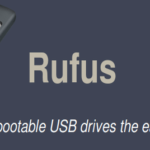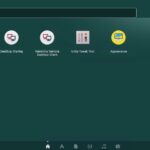Ubuntu 18.10 Code name
If we dig deep into it, we can understand that “Cosmic” is an adjective which narrates to the universe. It also means, “Something inconceivably vast”. Whereas “Cuttlefish” is a marine animal having two long tentacles, eight arms, and ‘w’ shaped eyes. According to Wikipedia, the highest brain-to-body ratio in all invertebrates is found in Cuttlefish. What they might be trying to indicate is that this release could be something super smart and out of the world may be.
Ubuntu Release Date
Canonical releases a new version of their Linux-based OS, Ubuntu, twice a year. One version being released in April and the other in October. These releases aren’t like those regular Ubuntu updates, but major and new upgrades which includes new features, updated themes and designs, better performance and all. The new Ubuntu 18.10 is set to hit the market on October 18, 2018. From that day onward, it will be available for everyone as a 64-bit ISO image on their official website as well as selected mirrors and an official torrent too. Before the actual release, there’s an opportunity to test the beta version of Ubuntu 18.10, available since September 2018.
Ubuntu 18.10 What’s New?
Yaru, A New Default Theme
Ubuntu 18.10 comes with a new and fresh look. It was for first decided to be released in Ubuntu 18.4 but it is now all set to make an appearance this time named as “Yaru”. The new theme includes new Suru icon pack, a GTK3 theme, GNOME Shell theme as well as lays foundation on Adwita/Ambiance. The theme provides a modern and clearer look to OS, from boot up to shut down. Also, it can be activated system-wide, which means that the redesign will affect every part of the desktop, even the lock screen would have a new look.
GNOME v3.30
Cosmic Cuttlefish or Ubuntu 18.10 will comprise the latest version of GNOME i.e. v3.30, released in the month on October. The GNOME v3.30 will probably feature a bunch of improvements related to performance, GNOME Shell Desktop as well as core apps like Nautilus. The GNOME v3.30, also codenamed as Almeria, includes a lot of new features:
- Better performance and bug fixes to make it a better experience than before
- Automatic updating of Flatpaks
- Various GNOME apps updates.
- GNOME panel providing access to ThunderBolt settings directly.
Android Integration
The most out of the box feature in Ubuntu 18.10 is that it will allow you to manage your phone through your PC. It features GS-connect, based on KDE Connect, which supports the GNOME Desktop Environment. It allows the following:
- Checking your notifications
- Browsing files of your phone
- File sharing between phone and desktop wirelessly
The only requirement is that you must have KDE Connect app on your smartphone.
Possibly a Better Battery Life
We have all known this fact that how quickly laptops run out of battery when using Linux. Like Fedora 28, Canonical (Ubuntu’s parent company) is also working on how to save battery, our hunch is that the Ubuntu development team is also currently exploring options to improve laptop’s battery life without having any impact on the stability of the system.
Fingerprint Scanner
Ubuntu 18.10 will support the fingerprint scanner of your machine. So now you’ll be able to unlock your system with just one touch, no need to type those passwords again and again.
Low Bandwidth Mode
Although it is available already, this time it might be easier to find it. The features allow you to enable a “low bandwidth” mode to save your data. This feature comes in handy when you have limited internet or if you’re using a cellular data.
DLNA Support
Ubuntu 18.10 will be supporting DLNA to enable easy file transfer from your PC to your Smart TV. It will be more beneficial for those who have a huge bundle of media files, like audio, family pictures and all that they want to transfer them to their TV without any hassle.
Improved Boot time and Performance
Ubuntu 18.10 comes with an improved boot time and the difference is so huge that it can be felt while using it. A lot of work has been put to improve the battery life of systems. A low power mode, by Linux Kernel, for USB-HDD controllers and other devices. Snap apps will also encompass improvements which will result in the boosted launch, few bug fixes and everything that hinders Snap apps from being smooth and stable.
Other Changes
Tiny changes here and there in Ubuntu- 18.10 which are worth mentioning include:
- Improved sound settings
- PulseAudio 12.2
- Multi-monitor support in GNOME Display Manager
- Enhanced quality and performance of video player
- New app installs will add icons to the screen
Conclusion
In the end, it is safe to say that Ubuntu 18.10 daily builds are pretty stable, contain a lot of features, including an improved performance as well as bug fixes. Canonical is surely working on the improvement of what they have achieved so far and are trying their best to introduce new features.
You can always check out the new Ubuntu 18.10 beta release. However, the beta releases are not for general usage. In order to avoid any kind of bug or instability, don’t install it.







